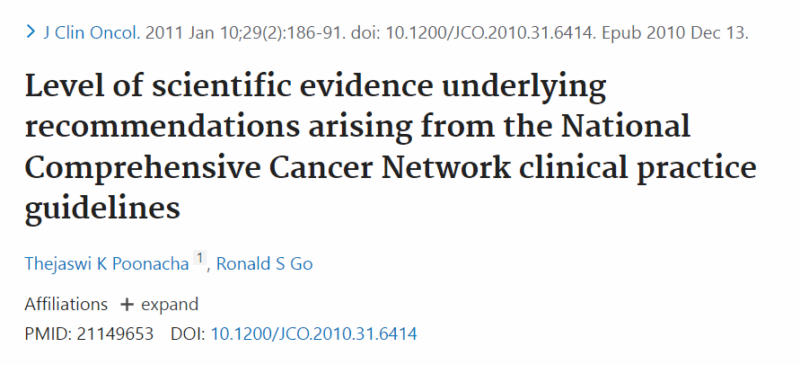Miguel Bronchud, Co-Founder and Advisory Board at Regenerative Medicine Solutions, shared a post on LinkedIn:
”The fight for the Best Cancer Clinical Management Guidelines? An American competition?
European oncologist communities are also following ESMO guidelines; and National ones in different countries and languages…At one time point even single institutions were expected to draw their own updated guidelines – but the waste of time and effort was considerable, and only partly compensated by some local adaptations & cost control?
The National Comprehensive Cancer Network (NCCN) is an alliance of 33 cancer centers in the United States, most of which are designated by the National Cancer Institute (one of the U.S. National Institutes of Health) as comprehensive cancer centers.
The NCCN Guidelines are still (I believe) the recognized standard for clinical direction and policy in cancer care and are the most thorough and frequently updated clinical practice guidelines available in any area of medicine.
As head in 2000+ of a then small Cancer Unit at a medium sized District Hospital like center near Barcelona , Hospital General of Granollers – starting in 1997 with one only bed chemotherapy day hospital and very rapidly evolving to over twenty outpatient treatment points – three decades ago I was among the first oncologist expert to support the use the NCCN Guidelines App online: an individual must be a registered user on NCCN.org.
There is no fee to become a registered user on NCCN.org and to view the NCCN Guidelines (“Become a registered user (free) on NCCN.org.”)
I sent one of my younger colleagues (Dr Jose Luis Villar) to one of the first NCCN conferences and we rapidly informed the Spanish Society of Medical Oncology (SEOM) about our high degree of satisfaction; publishing a little summary article in the SEOM journal in Madrid.
Traditional ASCO guidelines generally focus on a single question or a group of questions around an important topic.
The fundamental difference between the two groups’ guidelines perhaps relates to how they are developed: NCCN relies on narrative reviews of the literature, whereas ASCO relies on systematic reviews.
This past May, 2025, ASCO announced its collaboration with Google Cloud to launch the ASCO Guidelines Assistant, a new interactive tool that allows clinicians to quickly access ASCO’s evidence-based clinical guidelines to facilitate critical clinical decision-making.
Check out the conversation with Clifford A. Hudis about the AI-Powered ASCO Guidelines Assistant.
Developed with Google Cloud’s Vertex AI platform and Gemini models, the ASCO Guidelines Assistant provides users with clear citations and sources of all information generated by the tool and enables oncologists to ask follow-up questions about specific treatment recommendations for a particular cancer based on ASCO’s systematic reviews and the work of expert oncologist guideline panels.
Although it is too early to know whether these dynamic AI guidelines will substitute any others , we are definitely going to learn from the initiative and should be actively involved and supportive.”
Title: Level of scientific evidence underlying recommendations arising from the National Comprehensive Cancer Network clinical practice guidelines
Authors: Thejaswi K Poonacha, Ronald S Go
Rean the article here.

Learn more on NCCN Website.
More posts featuring Miguel Bronchud.


